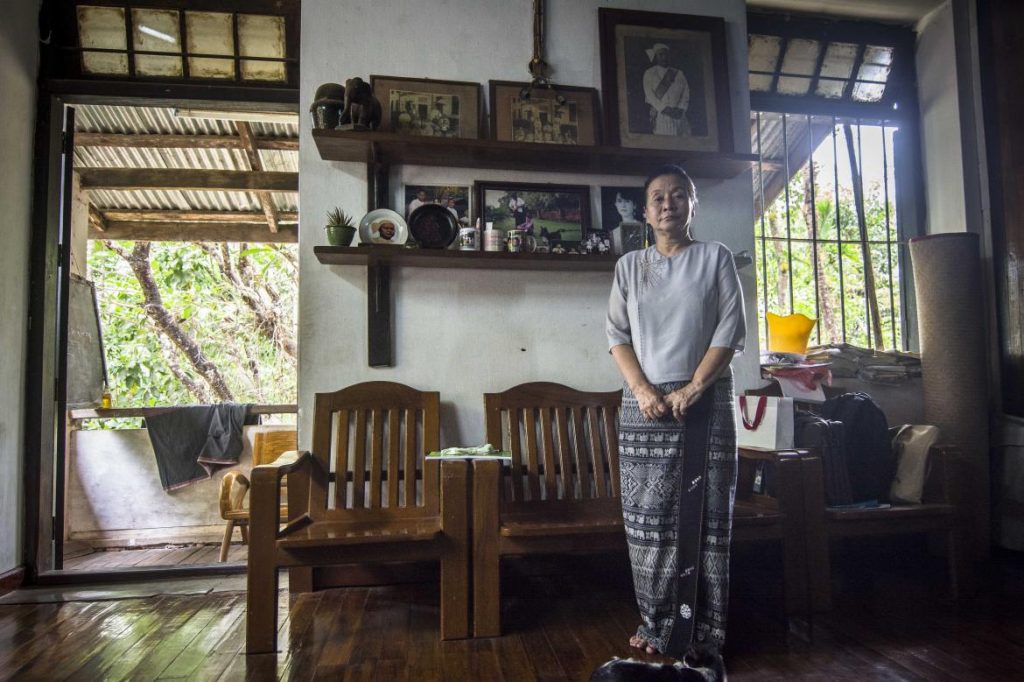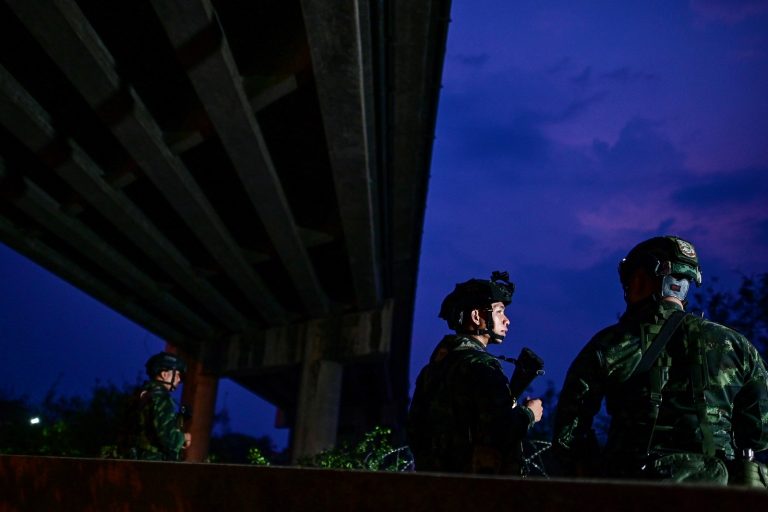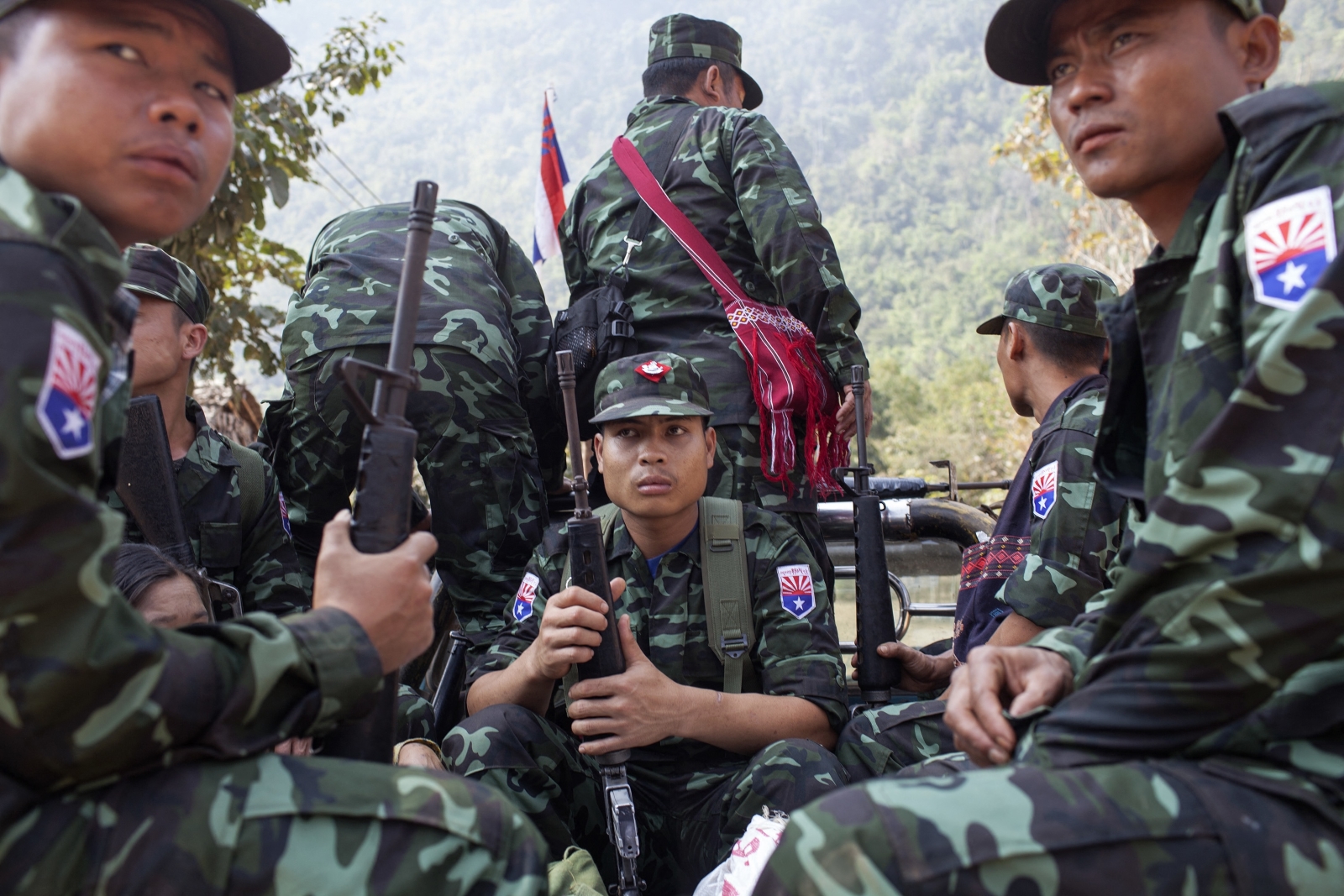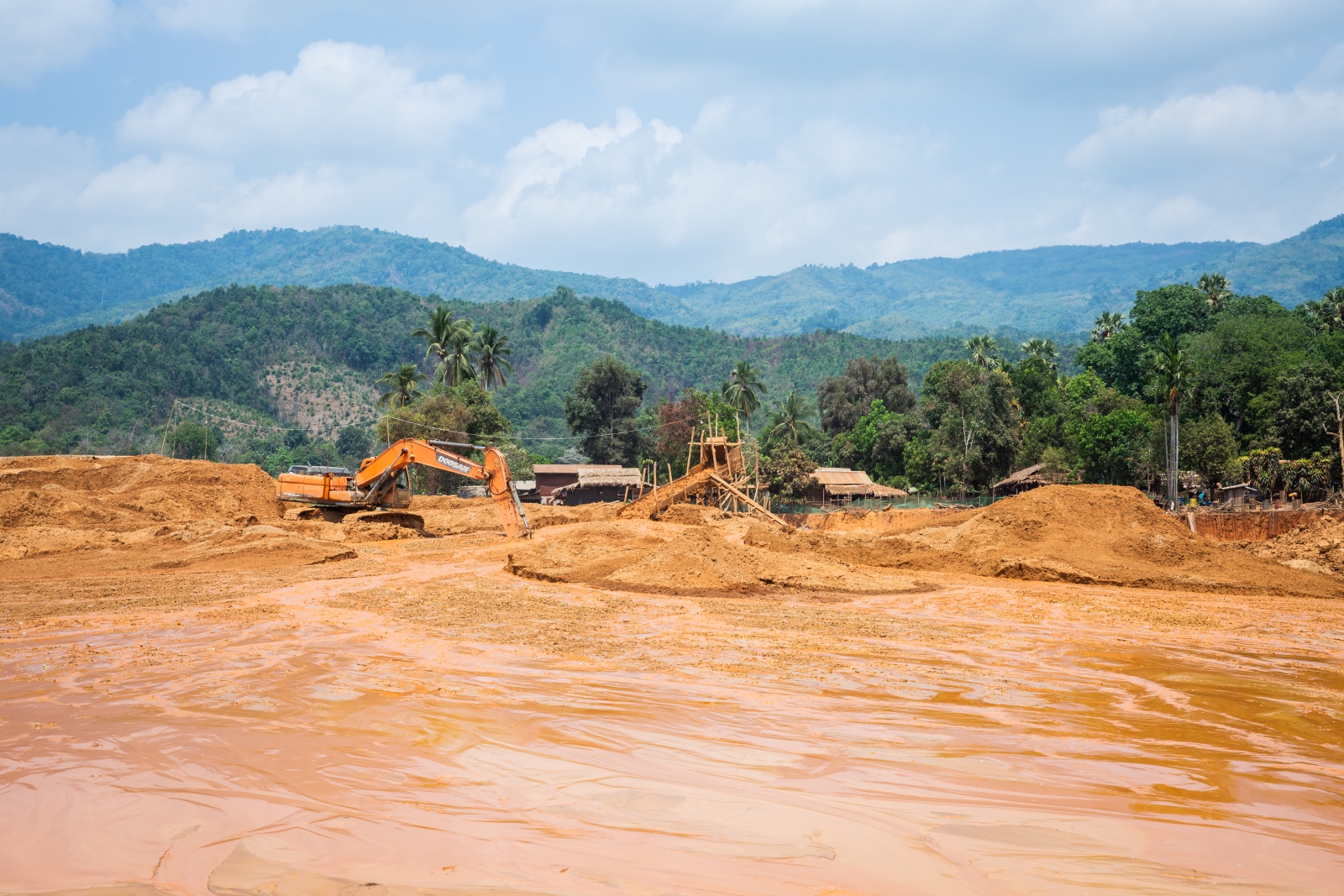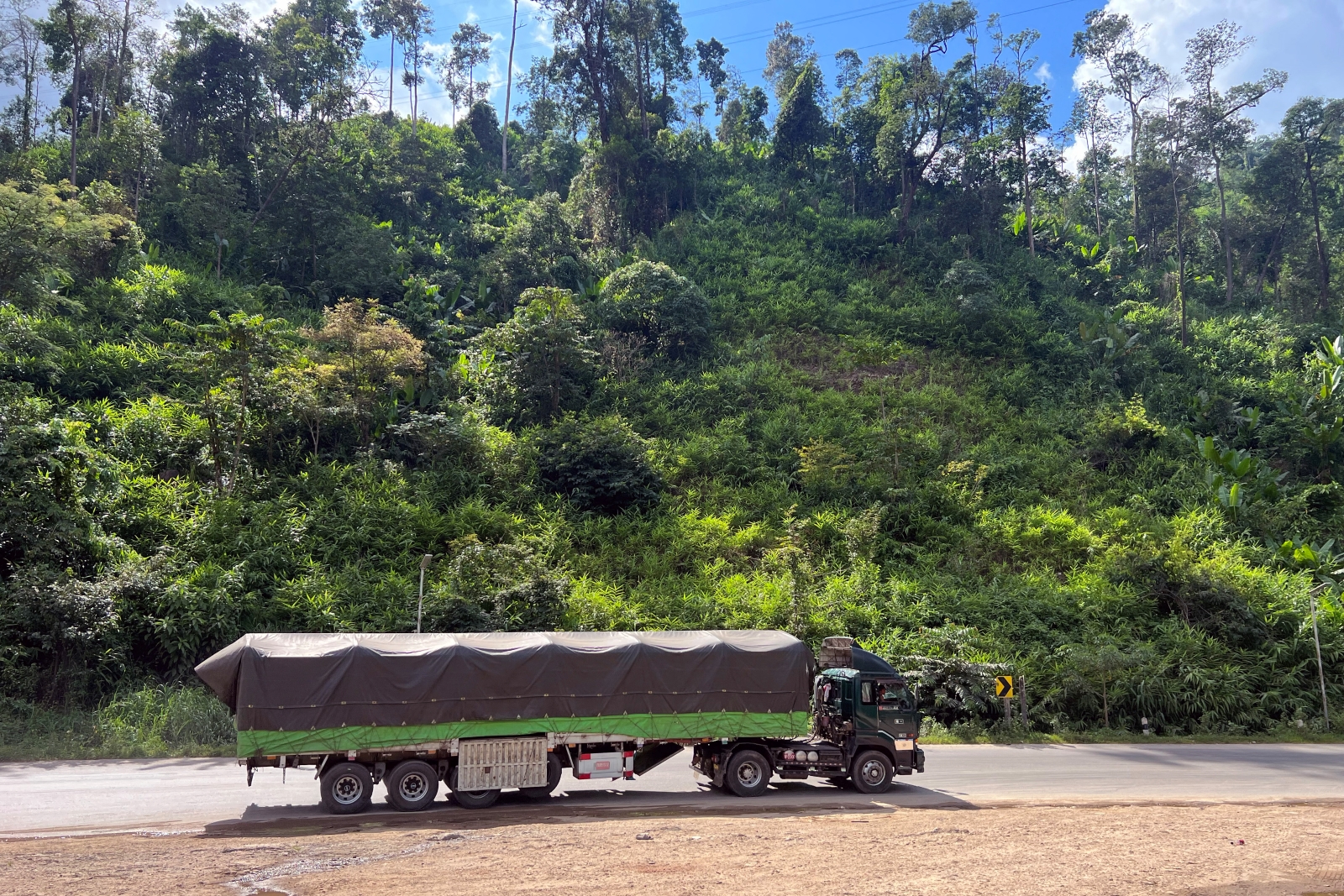By HEIN KO SOE | FRONTIER
Photos TEZA HLAING
National League for Democracy stalwart and former political prisoner Nang Khin Htwe Myint, 62, is the new Chief Minister of Kayin State. Her nomination by President U Htin Kyaw was unanimously approved by the 23 Kayin State assembly MPs on March 28 and she was sworn in with her cabinet two days later.
Elected to Hpa-an-1 constituency in the state’s capital last November, she is one of two women chief ministers. The other is Dr Lei Lei Maw, the Chief Minister of Tanintharyi Region. Khin Htwe Myint is a member of the NLD’s central executive committee and the chair of its Kayin State branch and has been a party member since 1990. She spoke to Frontier in a wide-ranging interview.
As Chief Minister, what are your priorities for Kayin State?
Kayin has many urgent issues regarding drug use among the young and it is very important for the future of the state to solve this problem. But other problems remain, such as health and education, which have been issues in Kayin State for many years, and of course everybody knows about the peace process.
Action against narcotics will be included in the plan that the NLD has asked its Union ministers and chief ministers to draw up within 100 days of taking office. Narcotics will be targeted in all the states and regions, because many addicts are students. This is a priority issue for the nation.
Support more independent journalism like this. Sign up to be a Frontier member.
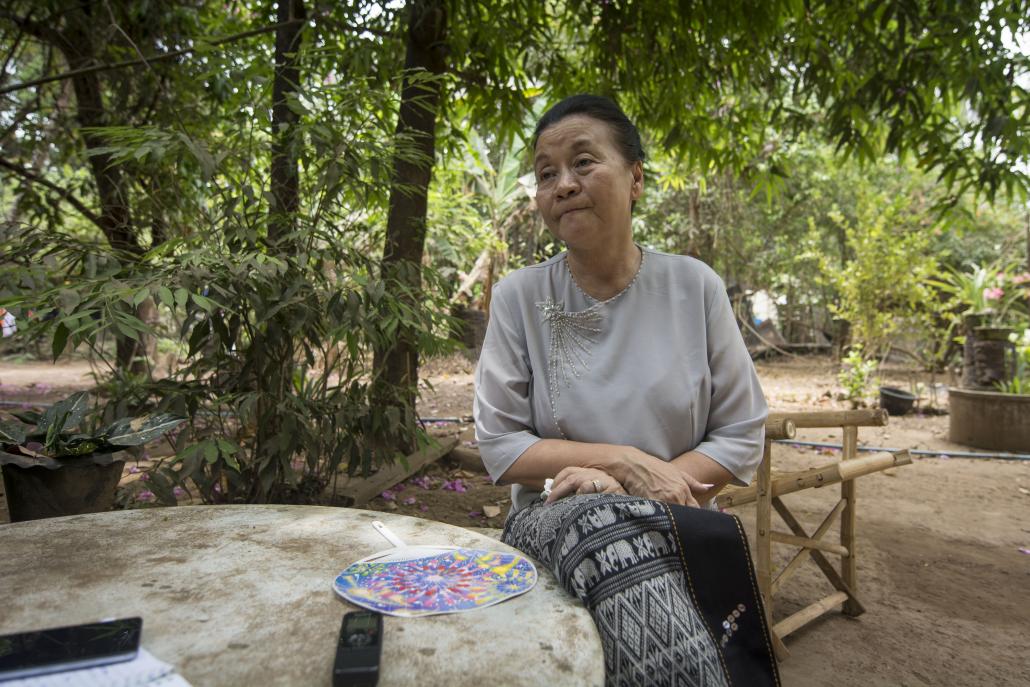
Nang Khin Htwe Myint, Chief Minister of Kayin State. (Teza Hlaing / Frontier)
You’ve been involved in politics since the early 1970s. What did you want for your state when you were younger?
When I was a second-year university student I took part in the protests in 1974 that followed the return to Burma of the body of UN Secretary-General U Thant after he died in New York. I was jailed after that for six years. I was not thinking about development in Kayin then.
Those of us who were involved in politics all knew we would end up in prison. Then, we understood the desire for a federal state that would benefit Kayin, and the situation in Myanmar’s politics but we didn’t have concerns about the lack of development in the state. [Khin Htwe Myint also spent two years in jail from 1997].
How much priority will you give to education?
The state has many young people, but many of them have no interest in education. We need to change the mindset that students have towards education. I know that few youths in Kayin State have an interest in getting an education. Many of those who have finished their schooling in Kayin State would like to go abroad and find work, for example to Thailand and other countries.
Another big issue is health. What are your plans for the health sector in Kayin?
The health sector is an issue around the country. Myanmar needs more doctors, more hospitals and better healthcare facilities around the country, but a priority should be the rural areas rather than in the cities. We have been thinking about development of the healthcare system in Kayin State and we need to cooperate with the private sector, and with other organisations.
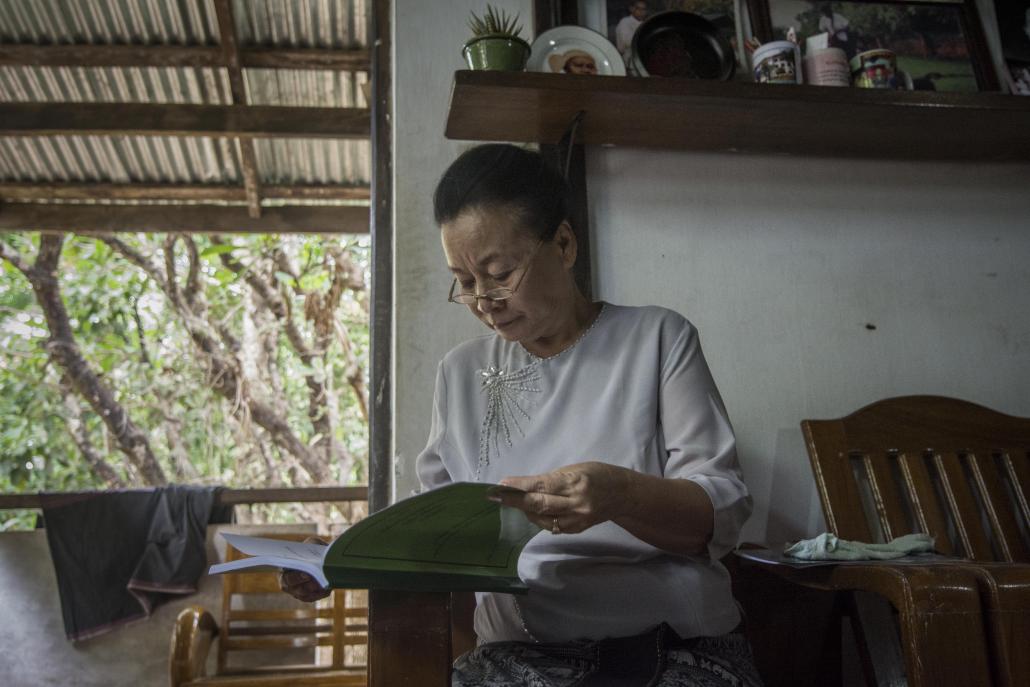
Nang Khin Htwe Myint, Chief Minister of Kayin State. (Teza Hlaing / Frontier)
The Karen National Union was among the eight groups that signed the national ceasefire agreement with the previous government last October. Do you expect the peace process will change under the new government?
We understand these ethnic armed groups and they understand our party. We know that many attempts have been made to try and reach peace. The armed forces want peace and we want there to be peace, not only in Kayin State, but also around the country with the other ethnic armed groups.
Now peace has been achieved at a state level, because this armed group [the KNU] has opened representative offices around Kayin State, but at the Union level, the new government will re-structure the peace process. But I think Myanmar will achieve a full peace process soon.
There are many refugees and internally displaced persons in Kayin State living along the border with Thailand. What can be done to help them?
The situation for the people who are refugees and IDPs is not good. Many are living in small huts with no doors and no beds. The lives of many of them were not safe because they were running away from the civil war for decades until now. I will try to do something for these people. I have thought a lot about what I can do to help them. I want them to be able to return to their home towns and I want there to be opportunities for them to find work. This is a big issue that needs a lot of work. We need to prepare jobs, schools, clinics and many other things.
Kayin State is rich in natural resources such as minerals, but some are under the control of armed groups and other organisations. Is this a challenge for the state government?
We need to discuss this in the peace process but I don’t think it is a problem. We don’t know exactly which armed groups are managing the natural resources of Kayin State, so this is something that needs to be researched.
As Chief Minister of Kayin State, what is your message to the Karen and other ethnic people?
My message to my ethnic people and all ethnic people is that we all wanted change and voted for the National League for Democracy because we trust it and now we must cooperate and work together for the future of the country.


